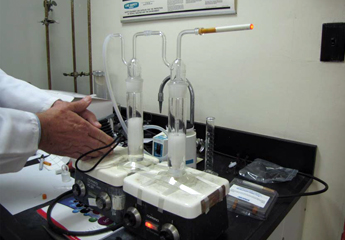
‘Experiment’ is a true method of learning. But what if this experiment goes wrong due to some mistakes which cannot be undone? And what if the experiment goes wrong and yields unexpected results. The wrong approaches or wrong experiments can also lead to dangerous and fatal results. To cite an example is an experiment that went wrong inside the lab of Dr. Otto Octavius from the story of Spiderman which led to the birth of villainous character.
Let us review few real life experiments where in mistakes led to adverse events:
- Chernobyl Disaster: The worst ever nuclear accident in the history of mankind that affected the regions of western USSR and Europe dates back to April 1986. The accident occurred prior to a test run of one of the system wherein a sudden power surge caused large spike in power output ultimately leading to reactor rupture and cascade of steam explosions. The series of events was responsible for spreading harmful radioactive radiations over large geographical area, effects of which are seen till today with people being affected of cancer, acute radiation syndrome, etc. Many reasons attributed to this dreadful event, with few of them being poor design of the building, reprobate experiments on site followed by mistakes committed by the plant operators.
- Elixir Sulfanilamide Incident: A preparation improperly prepared which was named as sulfanilamide contributed to mass deaths in US in 1937. This poisoning lead to deaths of more than 100 people caused due to sheer negligence of the company who prepared the drug without being aware of the poisonous component which was used in the formation. The solution used DEG as one of the component which was reported to be poisonous to humans and mammals and the manufacturer’s chief pharmacist and chemist was totally unaware of this fact.
However, few experiments going wrong also proved to be advantageous to mankind. One of success stories is that of Penicillin. ‘Penicillin’- An antibiotic was a renowned discovery of Nobel Prize winner Alexander Fleming. It was discovered when Alexander left his pile of petri plates in which he grew bacteria unattended. While discarding the plates, he came across one plate in which he witnessed the growth of mould across the bacterial region with clean region around it, something which was preventing the growth of bacteria. This ultimately led to the discovery of an antibiotic- Penicillin.
Another example of serendipity is that of safety glass. A glass beaker accidentally broken by a researcher was found not to be busted into sliver. This was due to the plastic coating on the beaker which remained due to beaker not being washed properly. Mistakes are not always harmful or fatal as Henry Ford rightly said “Even a mistake may turn out to be the one thing necessary to a worthwhile achievement”.
